Are you concerned about the potential link between vitamin D deficiency and hair loss? Many individuals wonder about the impact of vitamin D levels on their hair health. In this article, we aim to address this concern and emphasize the importance of understanding the role of vitamin D in maintaining healthy hair.
Vitamin D is a vital nutrient that plays numerous roles in the body, including supporting bone health, immune function, and overall well-being. However, its connection to hair health has also been a topic of interest. By exploring the relationship between vitamin D and hair health, we can gain valuable insights into how this essential vitamin influences the condition of our hair.
In the following sections, we will delve into the subject of vitamin D and its impact on hair. We will discuss the role of vitamin D in the body, how it relates to hair follicle function, and the potential effects of vitamin D deficiency on hair health. Additionally, we will explore ways to ensure adequate vitamin D levels and promote overall hair well-being.
Understanding the connection between vitamin D deficiency and hair health can empower you to take proactive steps towards maintaining optimal vitamin D levels, adopting a balanced lifestyle, and nurturing your hair for its best possible condition.
So, let’s explore this important connection and delve into the influence of vitamin D on our hair health and overall well-being.
Vitamin D and Hair Health:
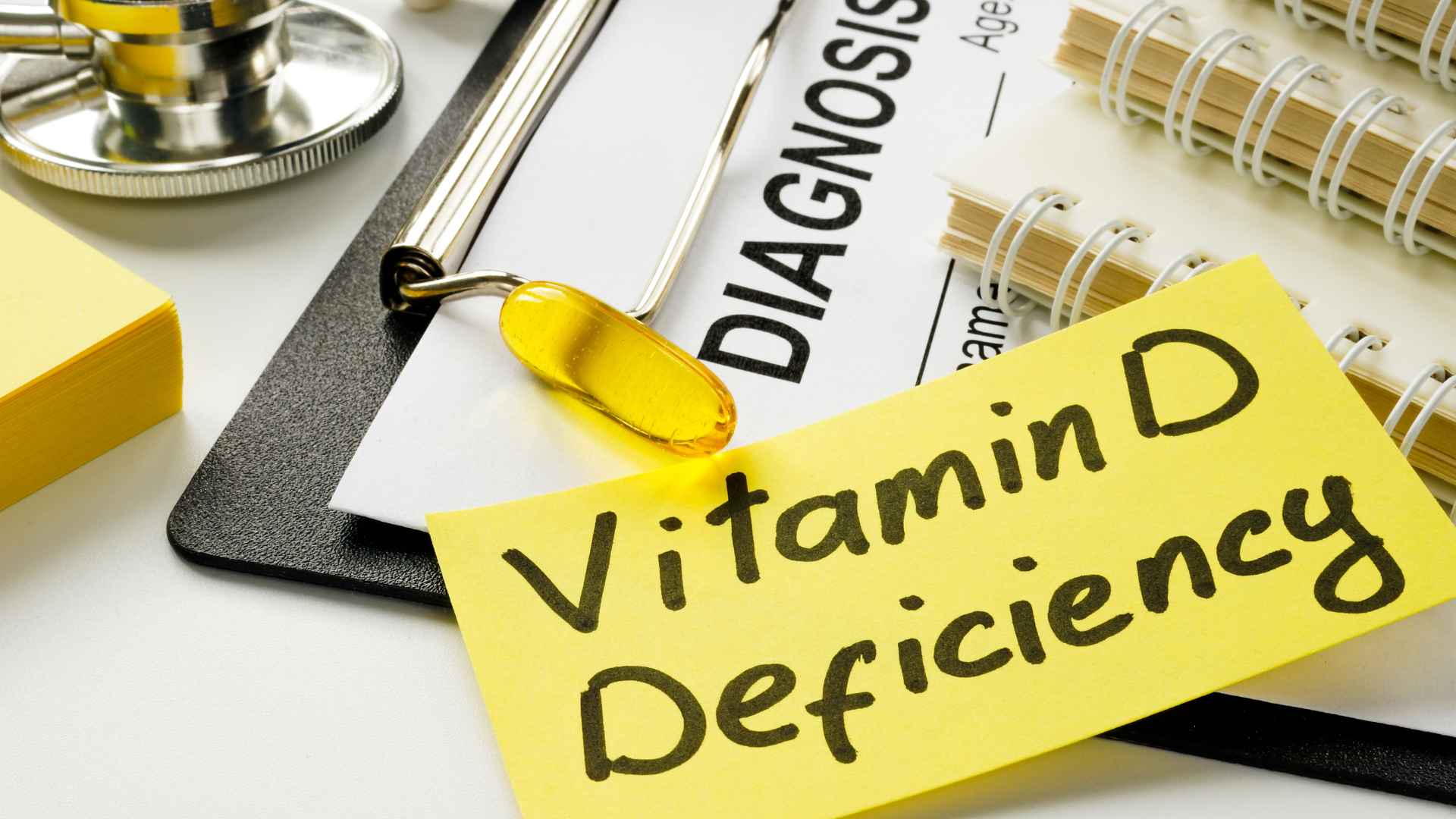
itamin D is not only crucial for overall health but also plays a role in maintaining healthy hair. Let’s explore its significance and how it affects various aspects of hair health:
- Overall Health Significance: Vitamin D is essential for several bodily functions. It helps regulate calcium and phosphate levels, supporting bone health and strength. It also plays a role in immune function, cell growth, and reducing inflammation. These factors indirectly contribute to hair health by supporting the overall well-being of the body.
- Hair Follicle Cycling: Hair follicles undergo a cyclical process of growth, rest, and shedding. Vitamin D is involved in regulating this cycle. It has been found to influence the transition of hair follicles from the resting phase (telogen) to the growth phase (anagen). Adequate vitamin D levels help maintain a balanced hair follicle cycling, promoting healthy hair growth.
- Hair Growth Stimulation: Vitamin D receptors are present in hair follicles, including the cells responsible for hair growth. Vitamin D affects the activity of these cells, stimulating the production of new hair strands. It supports the proliferation and differentiation of cells in the hair follicles, ensuring the growth of strong and healthy hair.
- Activation of Hair Follicle Stem Cells: Hair follicle stem cells are crucial for the regeneration and renewal of hair follicles. Vitamin D has been found to play a role in activating these stem cells, helping maintain the capacity for hair growth and rejuvenation. By activating stem cells, vitamin D supports the continuous cycle of hair follicle regeneration.
While the influence of vitamin D on hair health is evident, it’s important to note that hair loss can have various underlying causes, and vitamin D deficiency is just one potential factor. It’s also worth mentioning that excessive levels of vitamin D can have adverse effects. Maintaining a balanced level of vitamin D through proper nutrition and sensible sun exposure is key.
Ensuring adequate vitamin D levels can be achieved through a combination of sunlight exposure, dietary choices, and supplementation when necessary. Exposing the skin to sunlight for about 10 to 15 minutes a few times a week can help the body produce vitamin D. Additionally, consuming vitamin D-rich foods such as fatty fish, fortified dairy products, egg yolks, and mushrooms can contribute to vitamin D intake. In some cases, supplementation may be recommended under medical supervision, especially for individuals with known deficiencies.
It’s important to consult with healthcare professionals for personalized advice and recommendations regarding vitamin D supplementation, especially if you suspect a deficiency or have concerns about your hair health. They can assess your specific needs, conduct appropriate tests, and guide you towards the most suitable approach to support your hair health and overall well-being.
Understanding Vitamin D Deficiency:
Vitamin D deficiency occurs when the body doesn’t have enough vitamin D to meet its needs. Several factors can contribute to vitamin D deficiency, including:
- Inadequate Sun Exposure: The primary source of vitamin D is sunlight. When the skin is exposed to sunlight, it produces vitamin D. Insufficient exposure to sunlight, especially in regions with limited sunlight or during winter months, can lead to vitamin D deficiency.
- Limited Dietary Intake: Vitamin D is found naturally in a few foods, such as fatty fish (salmon, mackerel), cod liver oil, and egg yolks. It is also fortified in some dairy products, cereals, and plant-based milk alternatives. If these foods are not regularly consumed, dietary intake of vitamin D may be insufficient.
- Certain Medical Conditions: Some medical conditions can affect vitamin D absorption or metabolism. Conditions that impact the digestive system, such as celiac disease, Crohn’s disease, or cystic fibrosis, can interfere with the absorption of vitamin D from the diet.
- Impaired Absorption: Certain digestive disorders, such as liver disease or biliary obstruction, can impair the absorption of fat-soluble vitamins like vitamin D. Without proper absorption, the body may struggle to maintain adequate vitamin D levels.
Common risk factors for vitamin D deficiency include:
- Limited Sunlight Exposure: Living in regions with limited sunlight, spending most of the time indoors, or wearing clothing that covers most of the skin can increase the risk of vitamin D deficiency.
- Dark Skin: Melanin, the pigment responsible for skin color, can reduce the skin’s ability to produce vitamin D in response to sunlight exposure. People with darker skin may require longer exposure to sunlight to synthesize sufficient vitamin D.
- Obesity: Excess body fat can affect the bioavailability of vitamin D, as it can become sequestered in fat cells, reducing its circulation and availability to the body.
- Certain Lifestyle Choices: Strict vegetarian or vegan diets that exclude animal sources of vitamin D and diets low in vitamin D-rich foods can contribute to deficiency.
If you suspect vitamin D deficiency, it is important to consult with a healthcare professional. They can assess your vitamin D levels through blood tests and provide guidance on appropriate interventions. This may include increasing sunlight exposure, adjusting dietary choices, incorporating vitamin D-rich foods, or prescribing vitamin D supplements based on your individual needs.
Remember, identifying and addressing the underlying causes of vitamin D deficiency is essential for maintaining optimal vitamin D levels and supporting overall health, including hair health.
The Link Between Vitamin D Deficiency and Hair Loss:
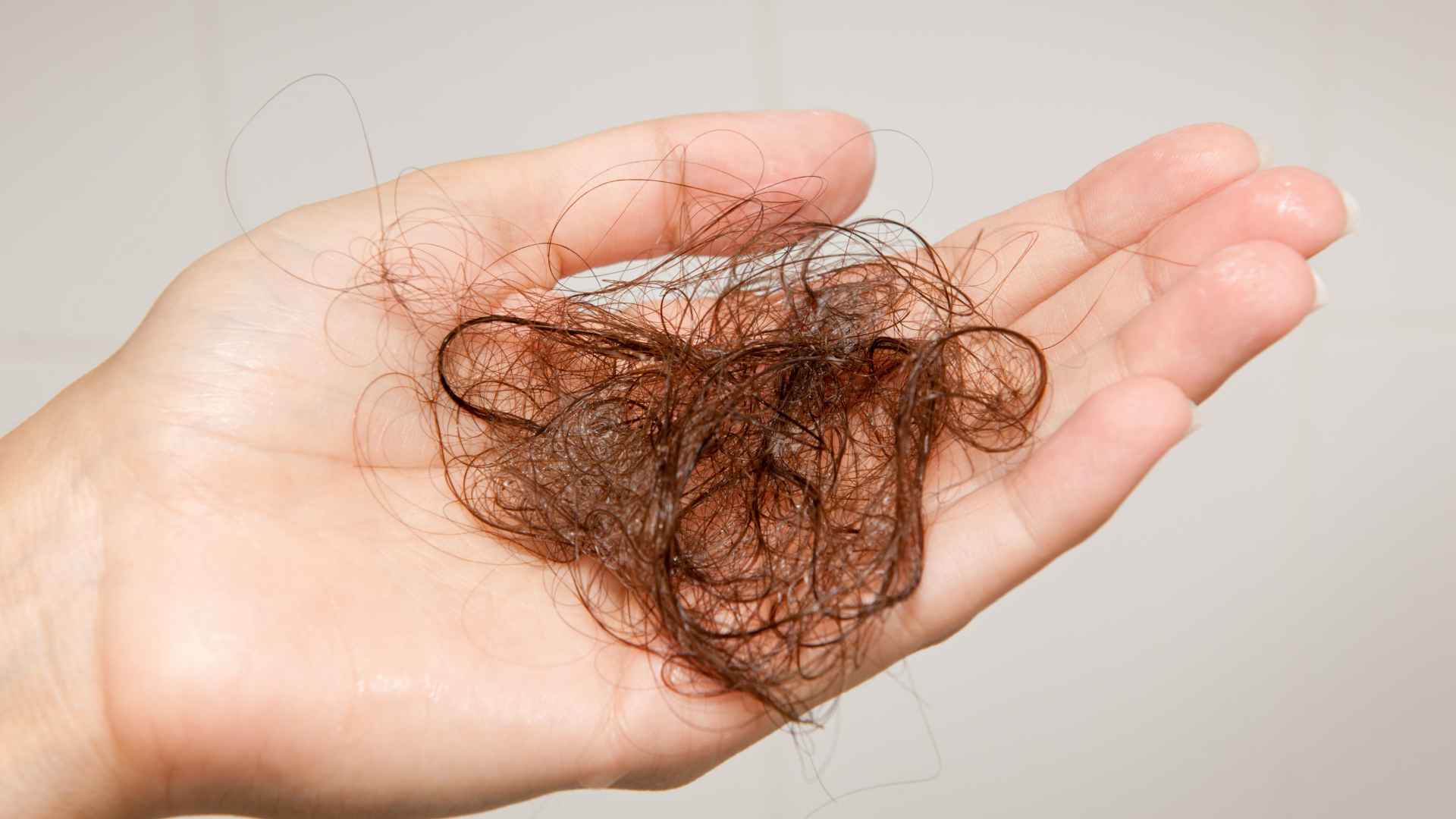
Vitamin D deficiency can indeed contribute to hair loss. When the body lacks sufficient vitamin D, it can disrupt the normal hair growth cycle, leading to a condition called telogen effluvium. Telogen effluvium occurs when there is a significant shift of hair follicles from the growing phase (anagen) to the resting phase (telogen), resulting in excessive shedding of hair.
Vitamin D plays a crucial role in the hair follicle cycle and the activation of hair follicle stem cells. Insufficient levels of vitamin D can disrupt the normal functioning of hair follicles and inhibit the hair growth process. It is believed that vitamin D deficiency affects the expression of genes involved in hair growth, leading to a disruption in the hair growth cycle.
Hair loss due to vitamin D deficiency is typically diffuse, meaning it affects the entire scalp rather than causing specific patches of hair loss. This diffuse shedding distinguishes it from other types of hair loss, such as pattern baldness or alopecia areata, which often exhibit more localized hair loss patterns.
While vitamin D deficiency can contribute to hair loss, it’s important to note that hair loss can have various underlying causes, and vitamin D deficiency is just one potential factor. If you suspect vitamin D deficiency as a potential cause of your hair loss, it is crucial to consult with a healthcare professional for proper diagnosis and treatment. They can assess your vitamin D levels through blood tests and provide guidance on appropriate interventions to restore vitamin D balance.
Addressing vitamin D deficiency often involves increasing sun exposure (while taking appropriate precautions) or incorporating vitamin D-rich foods into your diet. In some cases, vitamin D supplements may be prescribed under medical supervision to restore optimal vitamin D levels.
If you are experiencing hair loss along with other symptoms of vitamin D deficiency or have concerns about your hair health, consulting with a healthcare professional or dermatologist can help identify the precise cause and provide appropriate guidance for your specific situation. They can conduct a comprehensive evaluation, recommend suitable treatments or interventions, and monitor your progress to ensure optimal hair and overall health.
Other Symptoms of Vitamin D Deficiency:
In addition to hair loss, vitamin D deficiency can present with several other signs and symptoms. These may vary among individuals but can include:
- Fatigue and General Weakness: Feeling excessively tired or experiencing a lack of energy, even with adequate rest, is a common symptom of vitamin D deficiency. It can manifest as a general sense of fatigue or weakness in daily activities.
- Bone and Joint Pain: Vitamin D is essential for maintaining bone health and the proper absorption of calcium. Deficiency in vitamin D can lead to weakened bones, which may cause bone pain, particularly in the back, hips, and legs. Joint pain and stiffness can also be experienced.
- Muscle Weakness: Vitamin D plays a role in muscle function and strength. Inadequate levels of vitamin D can contribute to muscle weakness, making activities such as climbing stairs or lifting objects more challenging.
- Compromised Immune Function: Vitamin D is involved in modulating the immune system, and its deficiency can lead to a higher susceptibility to infections and frequent illnesses. Recurrent respiratory infections, colds, and flu-like symptoms may be more common in individuals with vitamin D deficiency.
These symptoms can coexist with hair loss and may indicate the need for further evaluation and management. If you are experiencing hair loss along with these symptoms or suspect vitamin D deficiency, it is advisable to consult with a healthcare professional for proper diagnosis and treatment. They can conduct blood tests to assess your vitamin D levels and evaluate for deficiency or other underlying causes.
Addressing vitamin D deficiency often involves increasing sunlight exposure (while taking appropriate precautions) or incorporating vitamin D-rich foods into your diet. In some cases, vitamin D supplements may be prescribed under medical supervision to restore optimal vitamin D levels.
It’s important to note that these symptoms can also be associated with various other health conditions, so a proper evaluation is essential. Seeking medical advice can help identify the underlying cause of your symptoms and provide appropriate guidance and treatment to address vitamin D deficiency and its associated symptoms.
Remember, maintaining adequate vitamin D levels is important for overall health, including hair health. If you have concerns about your symptoms or hair loss, consulting with a healthcare professional can help you navigate the diagnostic process and receive the necessary support for your specific situation.
Diagnosis and Treatment:
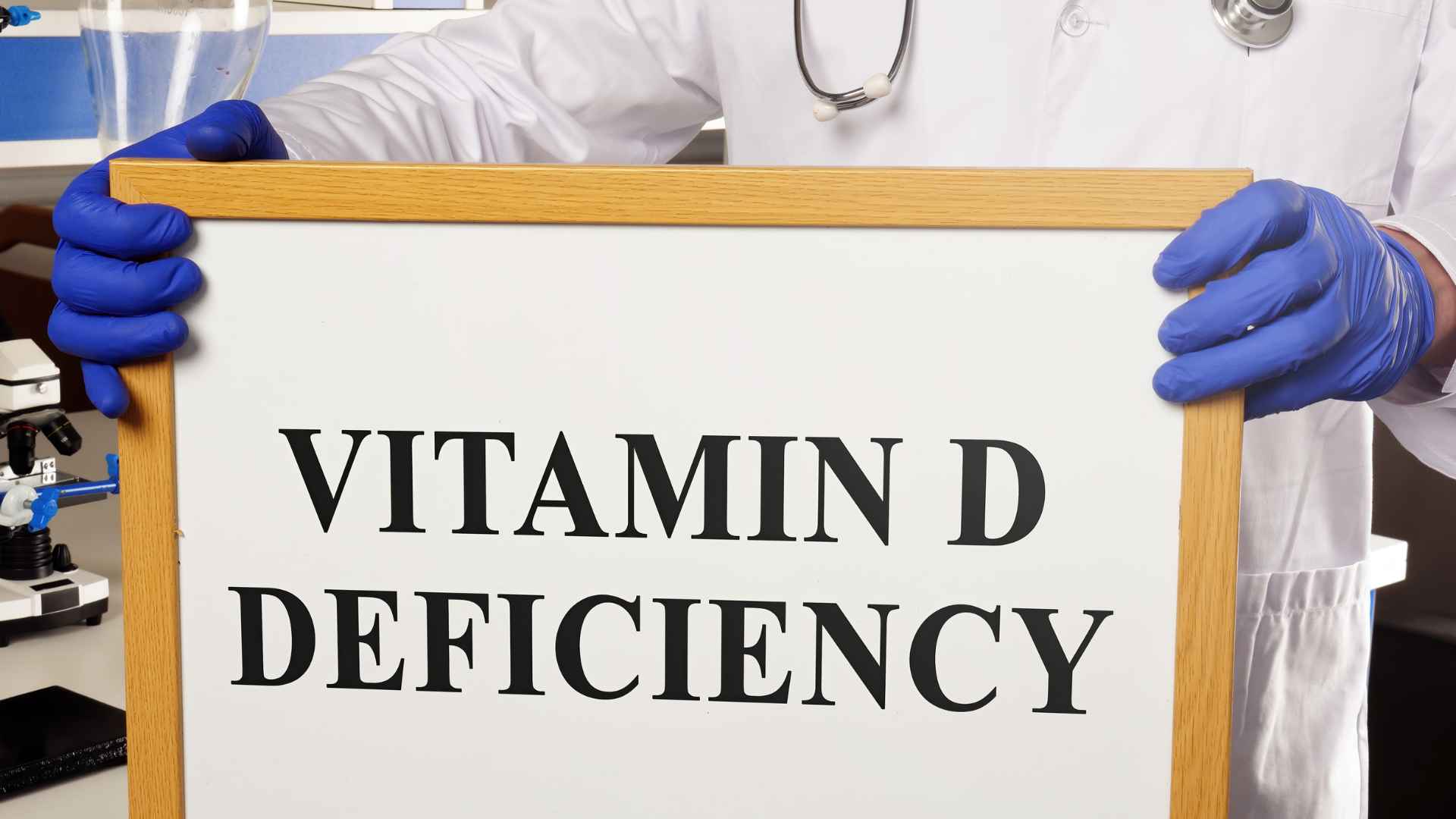
When it comes to diagnosing and treating vitamin D deficiency, it is crucial to consult with healthcare professionals, such as doctors or registered dietitians. They possess the expertise to provide proper evaluation, diagnosis, and guidance for effective management. Here’s what you need to know:
Importance of Consulting Healthcare Professionals:
Vitamin D deficiency can have various underlying causes, and its management should be tailored to individual needs. Healthcare professionals can conduct a comprehensive evaluation of your symptoms, medical history, and lifestyle factors to determine the most appropriate course of action. They can order specific blood tests, interpret the results, and guide you through the treatment process.
- Diagnosis through Blood Tests: The most common test used to diagnose vitamin D deficiency is the measurement of serum 25-hydroxyvitamin D levels. This blood test reflects the overall vitamin D status in the body. Based on the results, healthcare professionals can determine if you have insufficient or deficient levels of vitamin D.
- Potential Treatment Options: If diagnosed with vitamin D deficiency, treatment options may include:
- Vitamin D Supplementation: Healthcare professionals may prescribe vitamin D supplements to restore optimal vitamin D levels. The dosage will depend on your individual needs, severity of deficiency, and other factors. Supplementation can be in the form of vitamin D3 (cholecalciferol) or vitamin D2 (ergocalciferol).
- Dietary Changes: Incorporating vitamin D-rich foods into your diet can contribute to increasing vitamin D levels naturally. Foods such as fatty fish (salmon, mackerel), cod liver oil, egg yolks, fortified dairy products, and mushrooms can be included to enhance your vitamin D intake.
- Addressing Underlying Causes: If an underlying condition is contributing to vitamin D deficiency, healthcare professionals will work to address and manage that condition. For instance, treating malabsorption disorders or adjusting medications that interfere with vitamin D absorption may be necessary.
It’s important to note that vitamin D supplementation should be done under medical supervision, especially if higher doses are required or if you have certain health conditions. Healthcare professionals can guide you on the appropriate dosage, duration, and any potential interactions or side effects.
Monitoring of vitamin D levels through follow-up blood tests may be recommended to assess progress and ensure optimal levels are achieved and maintained.
Remember, vitamin D deficiency management should be personalized to your specific needs. By consulting healthcare professionals, you can receive proper diagnosis, individualized treatment options, and ongoing guidance to restore and maintain optimal vitamin D levels for hair health and overall well-being.
Tips for Preventing Vitamin D Deficiency and Maintaining Optimal Vitamin D Levels
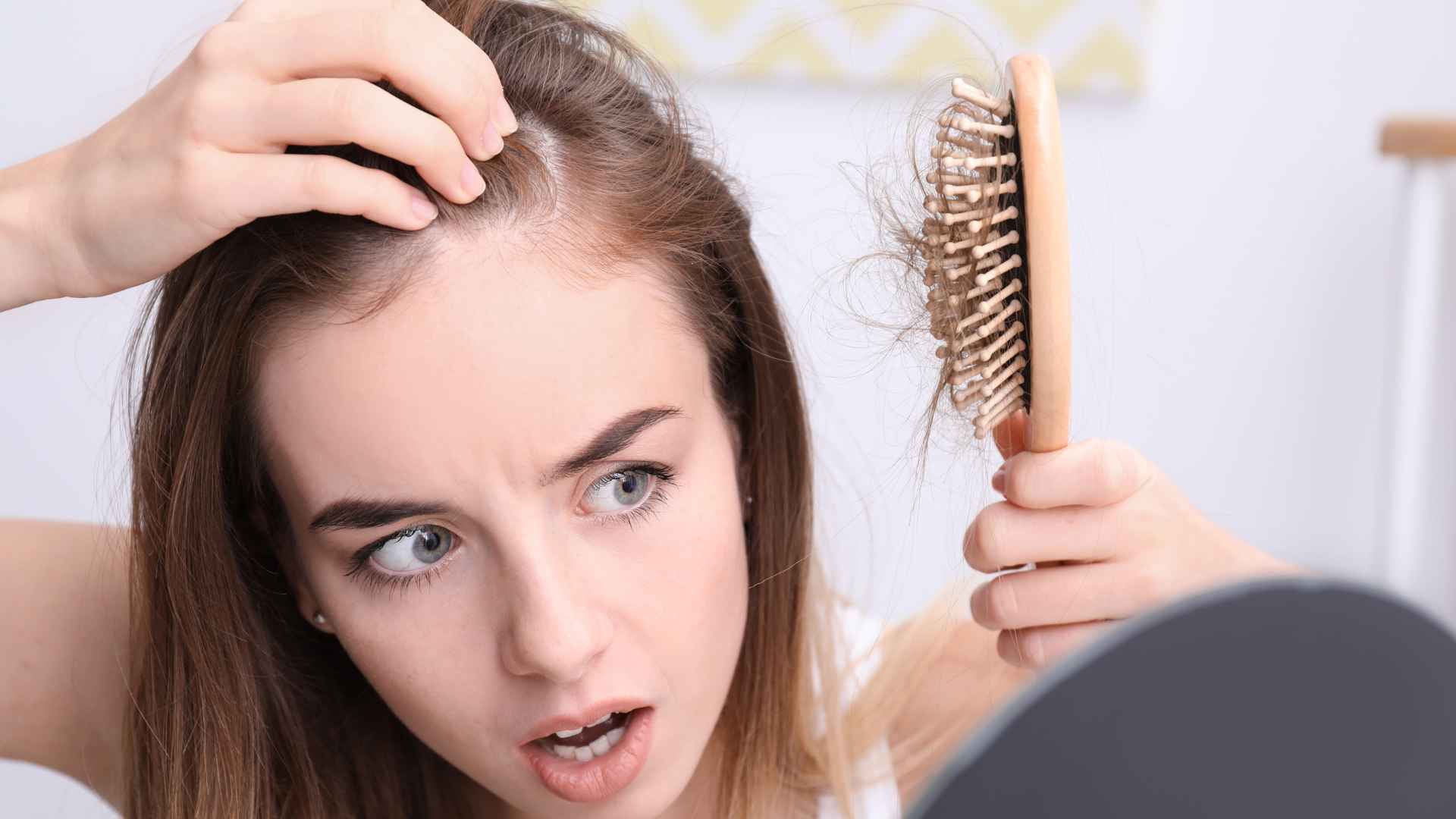
Preventing vitamin D deficiency and maintaining optimal vitamin D levels is crucial for overall health and well-being. Here are some tips to help you in this regard:
- Sensible Sun Exposure: Sunlight is a natural source of vitamin D, so spending some time outdoors can help your body produce vitamin D. Aim for about 10 to 15 minutes of sunlight exposure on your face, arms, and legs a few times a week. It’s important to note that the ability to produce vitamin D from sunlight varies depending on factors such as geographic location, time of year, skin type, and age.
- Sun Protection: While sunlight is beneficial for vitamin D production, it’s essential to balance sun exposure with proper sun protection to minimize the risk of skin damage. If you’re spending extended time in the sun, especially during peak hours, wear protective clothing, apply sunscreen with a sufficient sun protection factor (SPF), and wear a hat and sunglasses.
- Vitamin D-Rich Foods: Incorporate vitamin D-rich foods into your diet. Fatty fish such as salmon, mackerel, and trout are excellent sources of vitamin D. Other sources include cod liver oil, fortified dairy products (milk, yogurt, cheese), fortified plant-based milk alternatives, egg yolks, and mushrooms. Including these foods in your meals can contribute to your vitamin D intake.
- Consider Vitamin D Supplements: In cases where it’s challenging to obtain adequate vitamin D from sunlight and dietary sources, vitamin D supplements may be recommended. Supplements should be taken under medical supervision and in appropriate doses to ensure optimal levels. Healthcare professionals can guide you on the right dosage and help monitor your vitamin D levels.
- Regular Monitoring: Regularly monitoring your vitamin D levels through blood tests can help you stay informed about your vitamin D status. This is especially important if you have a history of deficiency, live in regions with limited sunlight, or have conditions that may affect vitamin D absorption. Consult with your healthcare professional to determine the appropriate frequency of testing based on your individual circumstances.
Remember, finding the right balance is key. Enjoy sensible sun exposure, protect your skin from harmful UV rays, and incorporate vitamin D-rich foods into your diet. If needed, consult with healthcare professionals for personalized guidance on supplementation.
Maintaining optimal vitamin D levels supports overall health, including hair health. By adopting these practices, you can help prevent vitamin D deficiency and ensure your vitamin D levels are adequate for promoting healthy hair and overall well-being.
Watch Does vitamin d3 deficiency cause hair loss? | Video
Top 5 FAQs and answers related to can vitamin d deficiency cause hair loss
Can vitamin D deficiency cause hair loss?
Yes, vitamin D deficiency can contribute to hair loss. Inadequate levels of vitamin D can disrupt the normal hair growth cycle, leading to a condition called telogen effluvium. This condition causes excessive shedding of hair due to the premature shifting of hair follicles from the growing phase to the resting phase.
How does vitamin D deficiency lead to hair loss?
Vitamin D is essential for maintaining healthy hair follicles and the hair growth cycle. Insufficient levels of vitamin D can disrupt the normal functioning of hair follicles, inhibiting hair growth and leading to excessive shedding. It can also impact the activation of hair follicle stem cells necessary for hair regrowth.
What are the signs of hair loss caused by vitamin D deficiency?
Hair loss due to vitamin D deficiency is typically diffuse, meaning it affects the entire scalp rather than causing specific patches. Other signs may include fatigue, bone and muscle pain, weakened immune function, and frequent illnesses. If you experience hair loss along with these symptoms, it is advisable to consult with a healthcare professional.
Can increasing vitamin D intake reverse hair loss?
Restoring optimal vitamin D levels can support hair regrowth in cases where vitamin D deficiency contributes to hair loss. However, it takes time for the hair growth cycle to normalize and for new hair to grow. It’s important to address the underlying deficiency and maintain adequate vitamin D levels for sustained hair health.
How can I address hair loss due to vitamin D deficiency?
If you suspect vitamin D deficiency as a potential cause of your hair loss, consulting with a healthcare professional is recommended. They can assess your vitamin D levels through blood tests and provide appropriate guidance. Treatment options may include vitamin D supplementation, dietary changes to include vitamin D-rich foods, and addressing underlying causes.
Conclusion:
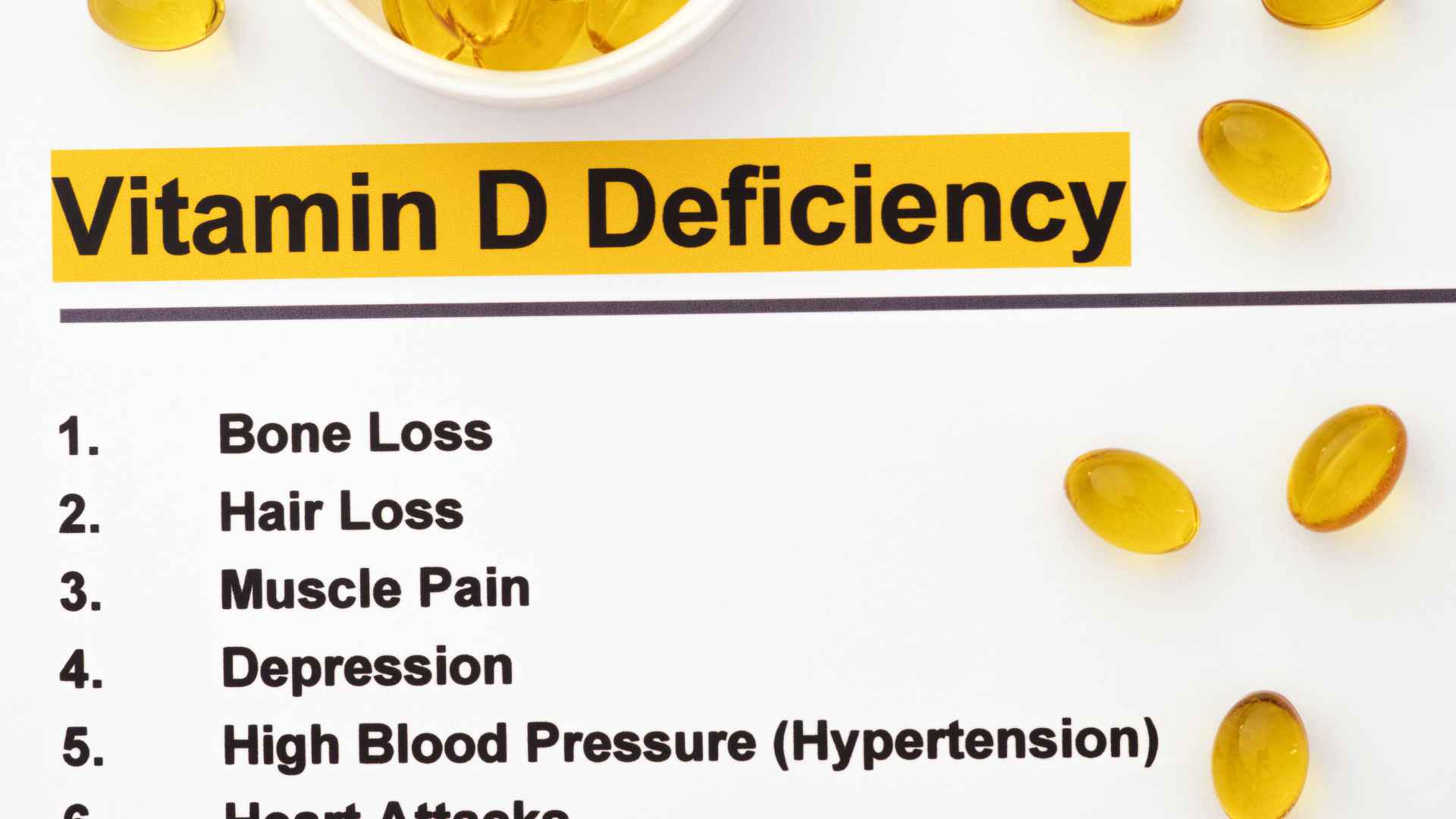
In conclusion, let’s recap the key points discussed in this article about the connection between vitamin D deficiency and hair loss:
- Vitamin D plays a significant role in maintaining overall health, including hair health.
- Insufficient levels of vitamin D can disrupt the hair growth cycle and contribute to hair loss, specifically a condition called telogen effluvium.
- Hair loss due to vitamin D deficiency is typically diffuse and affects the entire scalp.
- Additional symptoms of vitamin D deficiency may include fatigue, bone and muscle pain, weakened immune function, and frequent illnesses.
- Consulting with healthcare professionals, such as doctors or registered dietitians, is important for proper evaluation and management of vitamin D deficiency-related hair loss.
- Diagnosis of vitamin D deficiency can be made through blood tests that measure serum 25-hydroxyvitamin D levels.
- Treatment options may include vitamin D supplementation, dietary changes to include vitamin D-rich foods, and addressing underlying causes.
- Preventing vitamin D deficiency and maintaining optimal levels can be achieved through sensible sun exposure, consuming vitamin D-rich foods, and considering supplements when necessary.
- Balancing sun exposure with proper sun protection is crucial to minimize the risk of skin damage.
It is essential to identify and address vitamin D deficiency for overall hair health. If you suspect vitamin D deficiency as a potential cause of your hair loss or if you experience symptoms of deficiency, consulting with healthcare professionals is recommended. They can provide a proper evaluation, accurate diagnosis, and personalized management plan.
By addressing vitamin D deficiency, you can support your hair health, promote the normal hair growth cycle, and ensure overall well-being. Healthcare professionals can guide you through the diagnostic process, recommend appropriate interventions, and monitor your progress to help you achieve optimal vitamin D levels and maintain healthy hair.
Remember, the expertise of healthcare professionals is invaluable in managing vitamin D deficiency-related hair loss. Don’t hesitate to seek their guidance, as they can provide the necessary support and help you navigate your journey towards healthier hair.
Please share this Can Vitamin D Deficiency Cause Hair Loss: Symptoms Guide with your friends and do a comment below about your feedback.
We will meet you on next article.
Until you can read, Does Diabetes Cause Hair Loss? Understanding the Effects